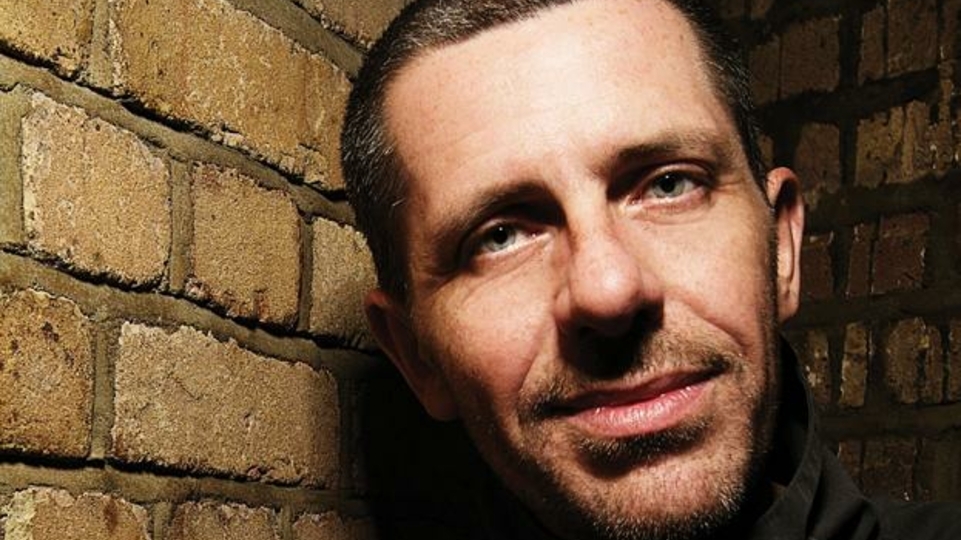Best Of British: Outstanding Contribution - Keith Reilly & The Fabric Team
Fortune Favours The Brave: Obsession is the key

Keith Reilly owns around 500,000 pieces of vinyl. They live on palettes in a warehouse. He knows it's a problem, that he's helpless to stop buying records, and he knows that the more he buys (sometimes he spends as much as £2000 a week) the more he buries himself in tons, literally tons, of plastic and cardboard.
But strangely, it might be this obsession that is key to the success of Fabric, the club he built a decade ago opposite London's Smithfields meat market in a vast disused cold storage unit.
Utterly single-minded and entirely uninterested in either following or setting trends, Reilly is unlike anyone else in the nightclub business. That there are not more like him is lamentable, but it's also what makes him so special. He is both humble about the wild success of both the club and its record label, and humbled by the attention and adulation it receives. He is genuinely amazed when he says that nearly 17,000 people went through the door of the club over its recent three-day tenth anniversary party. By any standards, that is an astonishing achievement.
The project has taken much from him. In fact, it took almost a decade from finding the venue to opening night in October 1999. Reilly sold two houses, one of them his family home, to invest in the club, such was his dogged, unwavering dedication to making it happen. People thought he'd lost his mind when he revealed that his residents would be Terry Francis from London party organisation Wiggle and the all but unknown Craig Richards, particularly considering that over in the West End, Fabric's antithesis, the 'superclub' Home, had also just opened in Leicester Square in a hail of paparazzi flash bulbs. It boasted residencies from Paul Oakenfold and Danny Rampling. But it barely lasted a year before it closed its doors.
Keith is reticent to take credit for the success of the club himself, which 10 years on still sees queues snaking down the street whenever its doors are open. He is much happier to defer this to his team, a loyal group who offer utter commitment to the club.
"We've grown up together, been in the trenches together. We are all here because of each other. I wouldn't be here without them," he says.
"What has created this longevity is that what we're doing is natural and pure, and it's never pretended to be anything other than that. Our whole lives is one relentless struggle, this constant search to find pieces of art that we love, for those rare moments of staggering beauty when you see something or hear something and everything else just drifts away.
"This club is nothing other than a tribute to everyone who has been here and everyone who has supported what we do, and it's their acceptance and their support that has gifted us the privilege to do it. Our joy is simply to find new music, and play it. I just want people to love this music the way I do."
Reilly left behind a manufacturing business, churning out CDs and tapes, to join his brother Billy in creating The Cross, another legendary London club. He held his very first warehouse party in 1978, "playing garage music" in its realest sense - garage as an ethos, not a genre, so everything from A Certain Ratio to Talking Heads to Chaka Khan. What Fabric does now harks back directly to this.
Keith's proud of staying absolutely true to himself throughout. This devotion was what drew John Peel to record his first and last compilation album for Fabric, and even to DJ at the club. A late night phone call with Peel - during which Reilly inadvertently revealed he had every one of Peel's radio shows recorded and archived on tape - both showed that they shared an obsessive passion for music and ultimately persuaded him to work with the club, something he was initially hesitant to do. They were kindred spirits and Keith regards the Peel coup among his proudest achievements.
The record label too is as single-minded as everything else that Reilly involves himself in. Set up without major label involvement, it has succeeded using a subscription model that finds Fabric albums falling on doormats the world over each month, preaching the gospel in a way viral marketing never could. It is, Reilly says, incredibly satisfying to see it succeed with the same purity that is key to the club.
His pioneering venue matter launched in a corner of the O2 Dome this summer, and though it has been dogged by frustrating transport link problems, he maintains that one day it will be the best live venue in the world. One is inclined to believe him, but even if it doesn't make it, it wouldn't be for a lack of belief.
"Craig [Richards] said something very early on, that our company motto should be, 'Fit in, or fuck off'. If you don't like it, we're really, really sorry but we ain't going to change, and we hope you find what you're looking for somewhere else. It really is as rude as it sounds, but it's real," says Keith. "There is a market that wants to be stimulated by new things, and it's about being brave enough to do it."
| <<< Best Fashion Label | Best DJ >>> |
The Other Nominees |
|||
| John Digweed | Rob Da Bank | Darren Hughes & The We Love Sundays Team | Ben Watt |